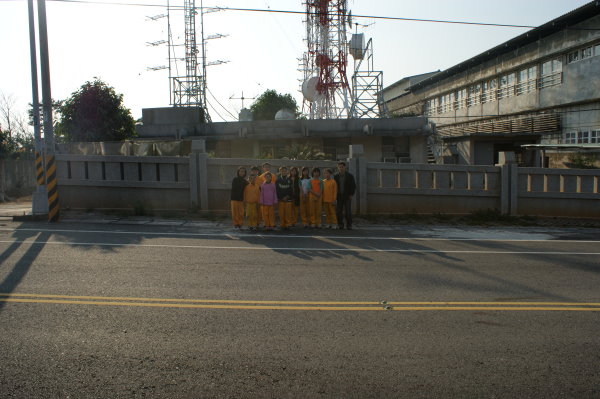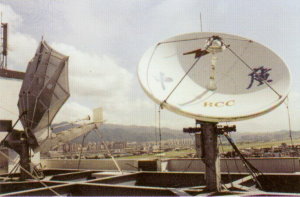|
Content:
|
Finding the topic wasnˇ¦t as
hard as imagined; all we did was gathering the children to participate, decided
on conversation structure, allowing children to ask almost naïve questions;
after repeated organizing, we had our direction for the project. BCC Fengyuan
Relay Station and Wun De Elementary School have been neighbors for many years.
Driving from bottom of Yuanlin and Chaotun slowly to the top following county
highway 139, one will see the red and white towers marking the location without
geting a glimpse of Wun De Elementary School. It seemed like the children could
reach the station and even the ripple-like radio waves just over the wall ˇV
outside of the windows. However, being so close did not make it so familiar. ˇ§Why
is the BCC station here?ˇ¨, ˇ§How is sound transmitted through the scary-looking
machines?ˇ¨, ˇ§How is the crisp and resonant voice on the radio created?ˇ¨
Different questions were popping up during the afternoon discussion. No matter
how well the teacher explained it, there was alwas a gap in understanding and
the children could grasp most of it but with too many imagined details and
empty comparisons. The sad part is that after the teacher tiringly lectured
endlessly, he or she could still see enough faces with puzzled expression in
the crowd.
The children asked: ˇ§Why not take us
to BCC to understand it and learn about broadcasting?ˇ¨ That was the initiative
we needed to break our habit of hoarding the knowledge during the process of
its communication. Not only we found the topic for the research, but utilizing
words such as ˇ§bringingˇ¨ and ˇ§go to understandˇ¨, we discussed and created the
primitive structure of the research. With some guidance, the children went online
and found the series on the Principals of broadcasting, and in term, they
discovered there was a museum concerning the history of broadcasting in Minhsiung,
Chiayi. At the same time, the other group decided to list the broadcasting
machine rooms at Fenyuan Station, BCC Hakka Network (Taichung City)
and Taipei BCC as their priority for research.
As the ˇ§guidance teachersˇ¨ assisting with the research, we learned once more
from the students. The character involvement of both the researcher and the
participants in the research are actually highlighted under the direction of ˇ§nature-basedˇ¨
in qualitative research. The difference of power and careful attitude during
the production of sensitive knowledge is demonstrated further in the example
thinking in action research (Patton 1998). When the teacher is willing to give
more power of control to the children, he and the children become closer to the
spirit of ˇ§critical empiricismˇ¨ ˇV admitting the children and the teacher have
different ˇ§envelope sensationˇ¨, but both have the right to perform dissertation
(Pan, 2003). This research was evolved and implemented under this spirit.
In conclusion, the purpose of
this research is helping the children to understand the local speciality
industry ˇV (BCC), under the influence of ˇ§environmental awareness and to have a
full comprehension of the humanity and culture in ˇ§Wunde-Dachuˇ¨ area. During
this process the children are able to: 1. Understand the principal of
broadcasting. 2. Transmission of broadcasting. 3 the process of program
production and important people in broadcasting. Collectively, the process
gives BCC, our silent neighbor, a voice and in term, the children can become
the primary explorer knowledge and the receipient.
References
Patton, M.Q. (1998).Qualitative evaluation and research methods (trans. by Wu,
C.Y., Li, F.R.).Taipei:
Laureate Publishing.
Pan, S.M. (2000). Qualitative research theory and application.Taipei: Psychology Publishing.
 
|

